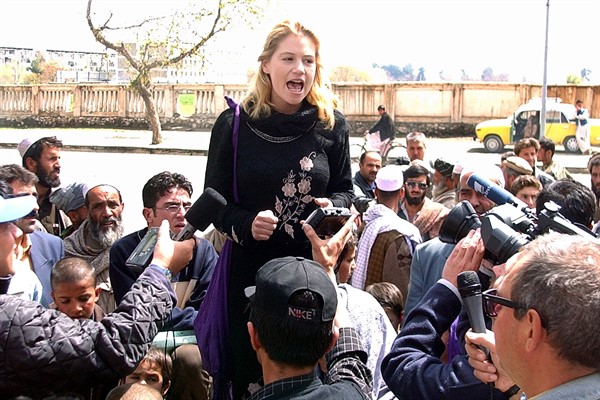Last week, just two days after U.S. President Joe Biden announced his decision to withdraw the last U.S. troops from Afghanistan by Sept. 11, the humanitarian community commemorated the death of Marla Ruzicka, a humanitarian hero from the early years of the war there. A college student when the Twin Towers fell, Marla recognized that the U.S. invasion would weigh hard on civilians, and rather than watch from afar, she bought herself a ticket to Afghanistan to do something about it.
Landing in Kabul, Marla set about making friends with U.S. soldiers, expatriate aid workers and local Afghans alike. More importantly, she connected them to one another. Her tireless mantra was: The U.S. military itself must make amends to the civilians it had harmed through the invasion, even if those harms were technically lawful.
Marla herself was later killed in Iraq, in a suicide bombing attack targeting a U.S. military convoy on April 16, 2005. But in her short and inspirational career, a story told in Jennifer Abrahamson’s “Sweet Relief,” Marla’s moral entrepreneurship generated normative ferment and policy innovation around two important ideas. The first was that civilians in war deserve direct restitution from the militaries that harm them, not just support from charities. The second was that civilians harmed lawfully in war—incidental or accidental victims in the language of war law—deserve restitution no less than victims of intentional war crimes.

